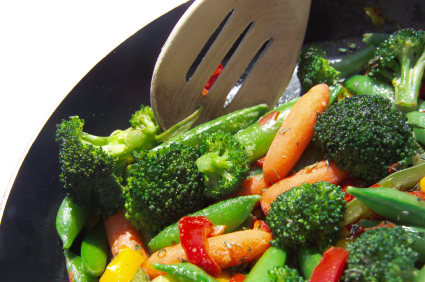We’ve told you before how important omega-3 fatty acids are to your health. These fats can decrease your risk for heart disease, stroke, and even cancer.
The best way to get them is from a diet rich in healthful fats. This includes wild caught salmon, avocado, nuts, and olive oil to name a few. But you can also get take them as a supplement.
A recent study showed that that taking an omega-3 supplement can have positive effects on your health. They can reduce triglyceride levels and fight inflammation. This may help you avoid more serious conditions in the future. But we already knew that. And that’s only part of the story.
In this study, 83 subjects were given either three grams of omega-3 fatty acids or a placebo for six weeks. They measured triglyceride levels in the blood before and after the study. The researchers also kept a log of what these people ate.
They found that the people who ate more of a certain type of food saw nearly a 50 percent increase in their positive response to taking omega-3 fatty acids. This included lowering triglyceride levels in red blood cells.1
| You can actually get a decent amount of omega-3 fatty acids from certain vegetables. Brussels sprouts and cauliflower are both great ways to add more of these fats to a meal, but they shouldn’t be your only source of them. |
So what was this common food?
Researchers at the University of California have found that eating the right amount of green vegetables can control the effects of omega-3 fatty acids in your body.
And it didn’t take a crazy amount of veggies to see a big increase, either.
It took less than half a cup of vegetables each day for subjects to be in the high response group. That’s not even a full four ounce serving of most vegetables.2
The researchers believe that because vegetables can reduce oxidative stress, not getting enough of them can lead to the oxidation of fats in the blood. This includes fats that are beneficial to your health, like omega-3 fatty acids. If they can’t survive in your body, they can’t do their job.
And that’s not the only reason vegetables may have this effect on fats. It also has to do with gut flora. Plant fibers and polyphenols can influence the microbes in the gut responsible for how our bodies use fatty acids.3
Even though the omega-3 fatty acids are effective, you need to make sure that they have an environment where they can work at their best.
This is great news for people who already love eating vegetables. But if you aren’t one of them, this is yet another reason to start adding green vegetables to every meal. If you don’t like how they taste, try adding some fresh lemon juice to brighten the flavors a little. A little bit of sea salt can go a long way too.
Just make sure to gently steam leafy green vegetables to lower their oxalic acid content. Too much of this compound can lead to kidney stones. Veggies to do this with include spinach, kale, and collard greens.
Like this Article? Forward this article here or Share on Facebook.
References:
1 http://jn.nutrition.org/content/early/2013/11/20/jn.113.181875.abstract
2 http://www.livestrong.com/article/458243-how-many-ounces-are-in-serving-of-vegetables/
3 http://www.nutraingredients-usa.com/Research/An-intriguing-and-unexpected-hypothesis-Could-green-vegetables-boost-efficacy-of-omega-3-supplements

